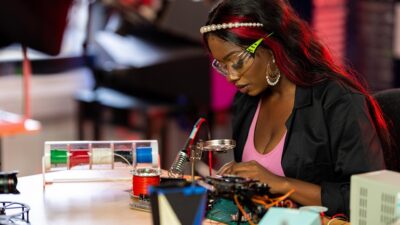The Future of Work: How Tech Culture is Reshaping Employee Expectations
The workplace is undergoing a profound transformation, driven largely by the rapid advancement of technology and the emergence of a unique tech culture. Gone are the days when work meant adhering to rigid hours and traditional office environments. Today’s employees expect flexibility, inclusivity, and a sense of purpose—all influenced by the dynamics of the tech industry. As we step into the future of work, understanding these evolving expectations is crucial for businesses aiming to attract and retain top talent.
The Rise of Remote Work
One of the most significant shifts in recent years has been the mainstream acceptance of remote work. Accelerated by global events such as the COVID-19 pandemic, companies across various sectors have adopted flexible work arrangements. Tech giants like Twitter, Facebook, and Dropbox have largely embraced remote work, setting a precedent that has influenced other industries.
This shift has fundamentally altered employee expectations; many now prioritize the ability to work from anywhere over traditional benefits. A study by FlexJobs found that 65% of respondents stated that the ability to work remotely is one of the most important factors when considering a job. As organizations adapt to this new normal, they must ensure that their policies are flexible enough to accommodate diverse preferences.
Emphasis on Work-Life Balance
Tech culture has also heralded an era where work-life balance is not just a buzzword but a foundational expectation. Employees increasingly seek environments that allow them to blend their professional and personal lives harmoniously. Leading tech companies have led the charge by offering unlimited vacation days, mental health resources, and flexible scheduling.
A focus on well-being is more than just a trend; it’s an imperative. According to a Gallup poll, organizations that prioritize employee well-being see lower turnover rates and higher employee engagement. To meet these expectations, employers must create policies that genuinely support their employees’ holistic well-being.
Inclusivity and Diversity
Another area where tech culture is reshaping employee expectations is inclusivity and diversity. The tech sector has faced intense scrutiny over its lack of representation, and as a result, many companies are working diligently to foster a more inclusive environment. Employees today expect their employers to take tangible steps to create a diverse workplace, valuing not just gender or racial diversity but also diversity of thought and experience.
Key initiatives include diverse hiring practices, mentorship programs, and creating spaces for open conversations about inclusion. Companies that fail to address these expectations risk alienating their workforce and facing reputational damage in an age where social responsibility is paramount.
Continuous Learning and Development
In the fast-paced tech landscape, continuous learning is integral to career progression. Employees increasingly expect their employers to invest in their growth through training programs, mentorship, and educational resources. The emergence of e-learning platforms and online courses has made development accessible, and employees actively seek organizations that prioritize skill enhancement.
Tech companies often lead the way with offerings such as internal training sessions, sponsorship for further education, and access to learning platforms like Coursera and Udemy. Fostering a culture of learning not only motivates employees but strengthens the organization’s adaptability in an ever-evolving market.
Embracing Transparency and Communication
Finally, the tech culture has ushered in an era where transparency and open communication are expected norms at work. Employees want to be in the loop about organizational changes, decisions, and the overall direction of the company. Tools like Slack, Asana, and Microsoft Teams have ingrained a culture of instant communication, enabling teams to collaborate openly and efficiently.
Companies that prioritize transparent communication foster trust and create a culture of engagement. When employees feel informed and included in decision-making, they are more likely to be invested in their work, ultimately leading to higher productivity and job satisfaction.
Conclusion
The future of work is being shaped by a tech culture that elevates employee expectations to new heights. Flexibility, work-life balance, inclusivity, continuous learning, and transparency are now essential components of a positive work experience. As organizations navigate this cultural shift, understanding and adapting to these expectations will be pivotal in attracting and retaining talent in an increasingly competitive job market. By fostering an inclusive and supportive environment, companies can not only meet the demands of modern employees but also cultivate a culture that thrives in the future of work.



